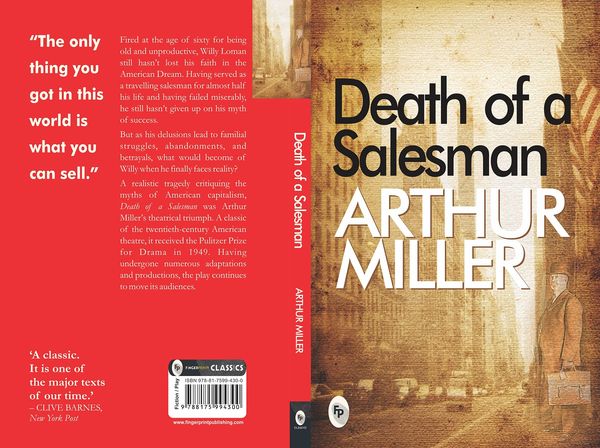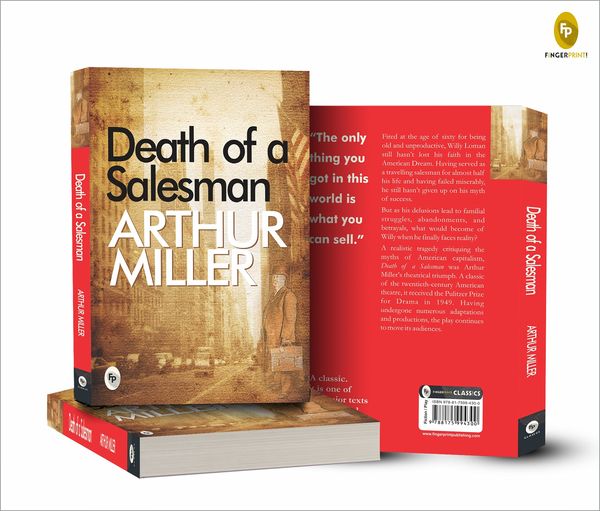“The only thing you got in this world is what you can sell.”
Fired at the age of sixty for being old and unproductive, Willy Loman still hasn’t lost his faith in the American Dream. Having served as a travelling salesman for almost half his life and having failed miserably, he still hasn’t given up on his myth of success.
But as his delusions lead to familial struggles, abandonments, and betrayals, what would become of Willy when he finally faces reality?
A realistic tragedy critiquing the myths of American capitalism, Death of a Salesman was Arthur Miller’s theatrical triumph. A classic of the twentieth-century American theatre, it received the Pulitzer Prize for Drama in 1949. Having undergone numerous adaptations and productions, the play continues to move its audiences.
‘A CLASSIC. IT IS ONE OF THE MAJOR
TEXTS OF OUR TIME.’
– CLIVE BARNES, New York Post
About the Author
Arthur Miller was born in a New York Jewish family on 17 October 1915. He wrote his first play, No Villain, during his sophomore year, for which he won the Avery Hopwood Award. His second play, The Man Who Had All the Luck (1940) won the Theatre Guild’s National Award. Death of a Salesman was written in 1948 in a small studio built by Miller in Roxbury, Connecticut. It premiered on Broadway at the Morosco Theatre in February 1949. It was critically acclaimed and achieved notable commercial success. Performed 742 times, it was a winner of the Tony Award for Best Author, the New York Drama Circle Critics’ Award, and the Pulitzer Prize for Drama.
Miller also wrote several radio plays and screenplays. The Misfits (1961) was his most notable screenplay. He was awarded the National Medal of Arts in 1993, and in 1998, he won the PEN/Laura Pels International Foundation for Theatre Award for a Master American Dramatist. Miller went on to win various other prestigious awards and prizes, including Medal for Distinguished Contribution to American Letters in 2001.
- Weight : 134
- Breadth : 12.6
- Length : 19.6
- Height : 1






